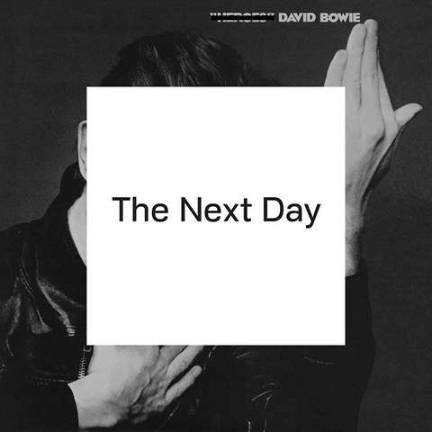Now Take Them Out, Devils: The Next Day Introduces Bowie, The Mortal (Part 2)

[Missed part one? Read it here.](http://nypress.com/thenextday/) When The Next Day was announced on Bowie's 66th birthday, I had long since given up any hope of hearing new material. It was as if a limb I had amputated years ago had suddenly reappeared one morning; the phantom pains I had gone through such lengths to banish merely a prelude to a second act. I was surprised and excited, but also skeptical. The song that accompanied the announcement, ["Where Are We Now,"](http://www.youtube.com/watch?v=QWtsV50_-p4) was good, but Bowie sounded old, tired, morose (which was odd, because a number of the lyrics sounded like they had been written by an undergrad who'd just returned from a semester abroad in Berlin). I was terrified that The Next Day would be crap, or even worse, that it would be just okay, a pleasant-smelling brainfart released after a decade-long hiatus. But it wasn't either of those things. The Next Day is great. In the context of the album, "Where Are We Now" reveals itself to be a song that sounds worn out and exhausted by design; a worn out, scratched up memory of Bowie's time in Berlin. And it's not typical; in places, Bowie sounds as virile as ever, such as when he's barking at the celestial celebrities of ["The Stars (Are Out Tonight)."](http://www.youtube.com/watch?feature=player_embedded&v=gH7dMBcg-gE#!)* Bowie is usually at his most interesting when he's a thief, swiping the aesthetics and structure from everything from Krautrock to Philly soul, from Industrial music to Marc Bolan stomp; yet his main point of reference on The Next Day, however, seems to be himself. The album is, in a way, a complex, interwoven history of the Bowie cannon, Ziggy Stardust tempered by the Berlin Triptych, the Tin Machine years rubbing shoulders with the futurefolk of Space Oddity, Earthling's breakbeats sharing a roof with the no-nonsense pop of the eighties. Bowie even sees fit to have the ghosts of "Five Years'" remorseful drums haunt the end of "You Feel So Lonely You Could Die." The exception to this rule seems to be album closer "Heat," which cribs from everything Scott Walker's been doing the past two decades; that being said, Bowie's been ripping off Walker since the late sixties, so maybe cribbing from Walker is part of what makes Bowie Bowie. Lyrically, it's Bowie's greatest release since 1.Outside. His songwriting is generally at its strongest when it's at its most macabre and gothy, and boy, is this a gloomy record. There are tales of school shootings, lynch mobs, young men sent off to fight pointless wars, disaffected models dying on the vine, and the hollow deification of Hollywood heroes. The writing is nuanced and smart, and one gets the impression that the songs were made because Bowie legitimately felt he had something to say. The only track that really falls flat is "(You Will) Set the World On Fire," which, though a beautifully written meditation on the Greenwich Village folk scene of the sixties, sounds like a boring, schlocky late period single forced into the world by someone who peaked decades ago. That's not who Bowie is. That's not what this album is. The Next Day is the signpost for Bowie's next, and perhaps last, permutation: the mortal. He is no longer an alien, a nightmare only seen in the peripheral, an undying song and dance man with perfect hair and the Devil's smile; he is human, and just like the rest of us, he is dying. David Bowie and I both made the assumption that a Bowie that was not pure myth, not pure music and pop and spectacle, would be in some way wanting, in some way less effective. I'm happy to report that we were wrong. *goddammit, that video is an article unto itself. Suffice it to say that it would be perfect if it weren't for the shitclumsy use of Adobe After Effects at the beginning and end. And that just about wraps it up for this week. If it tickles your fancy, follow Simon Lazarus Vasta on Twitter [@Hunter_S_Narc](https://twitter.com/Hunter_S_Narc)